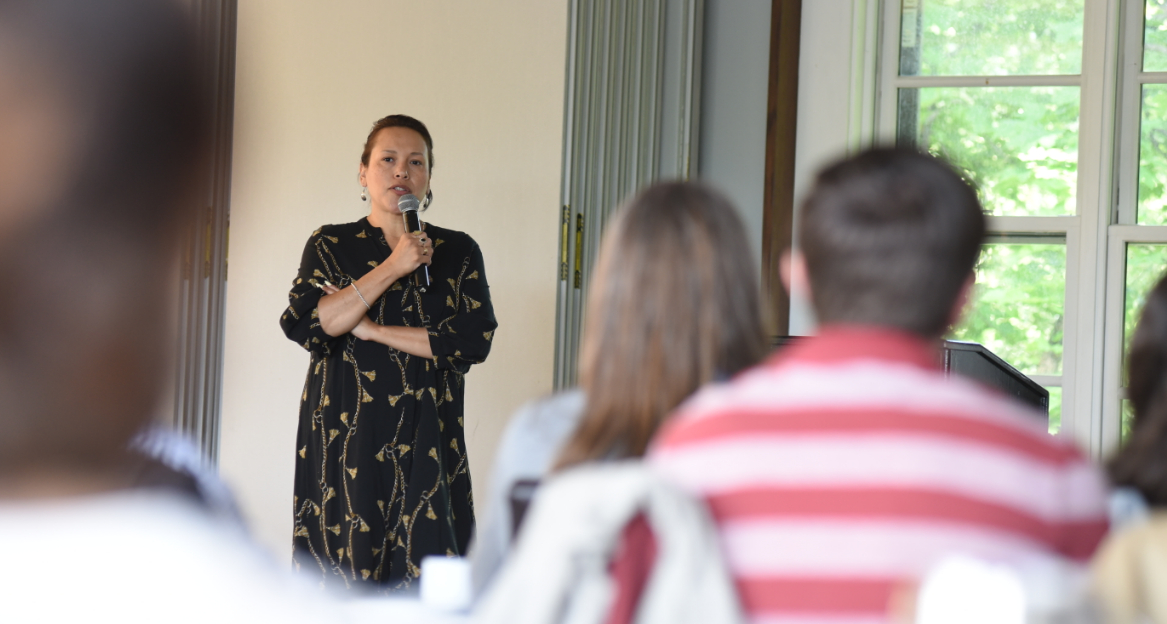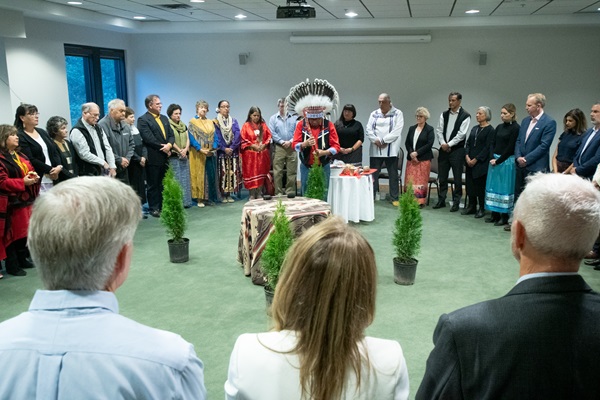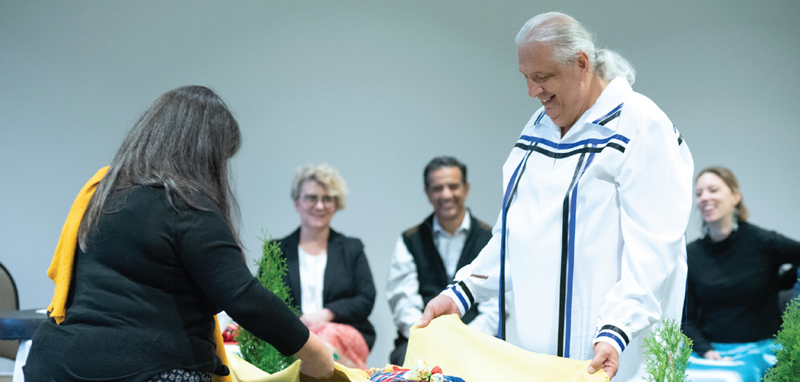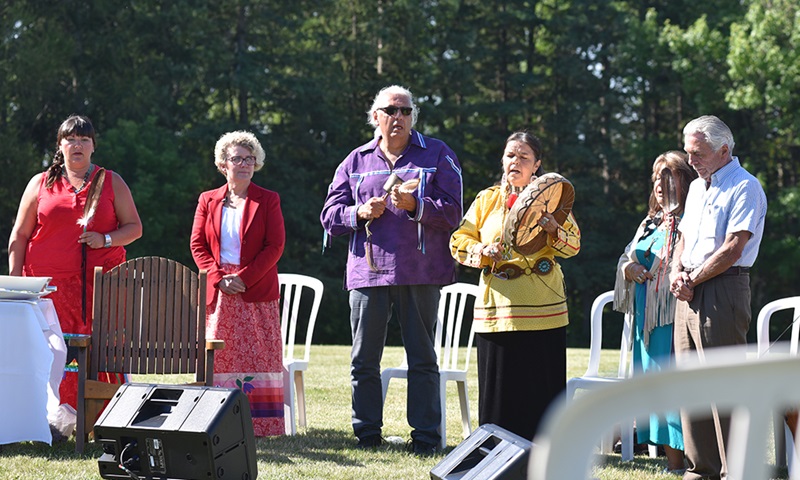Reconciliation
We are committed to co-creating a shared future built on rights, equity and well-being for Indigenous peoples.
The NWMO is on a continuous learning pathway towards Reconciliation. As part of our commitment to Reconciliation, we recognize both the historic and current injustices Indigenous communities have endured. We continue to learn as an organization remaining involved in collaboration and discussion with Indigenous communities on the work of Reconciliation.
We know that working with Indigenous peoples, learning from Indigenous Knowledge and applying learnings to our work are critical to successfully implementing Canada's plan for the long-term management of used nuclear fuel.
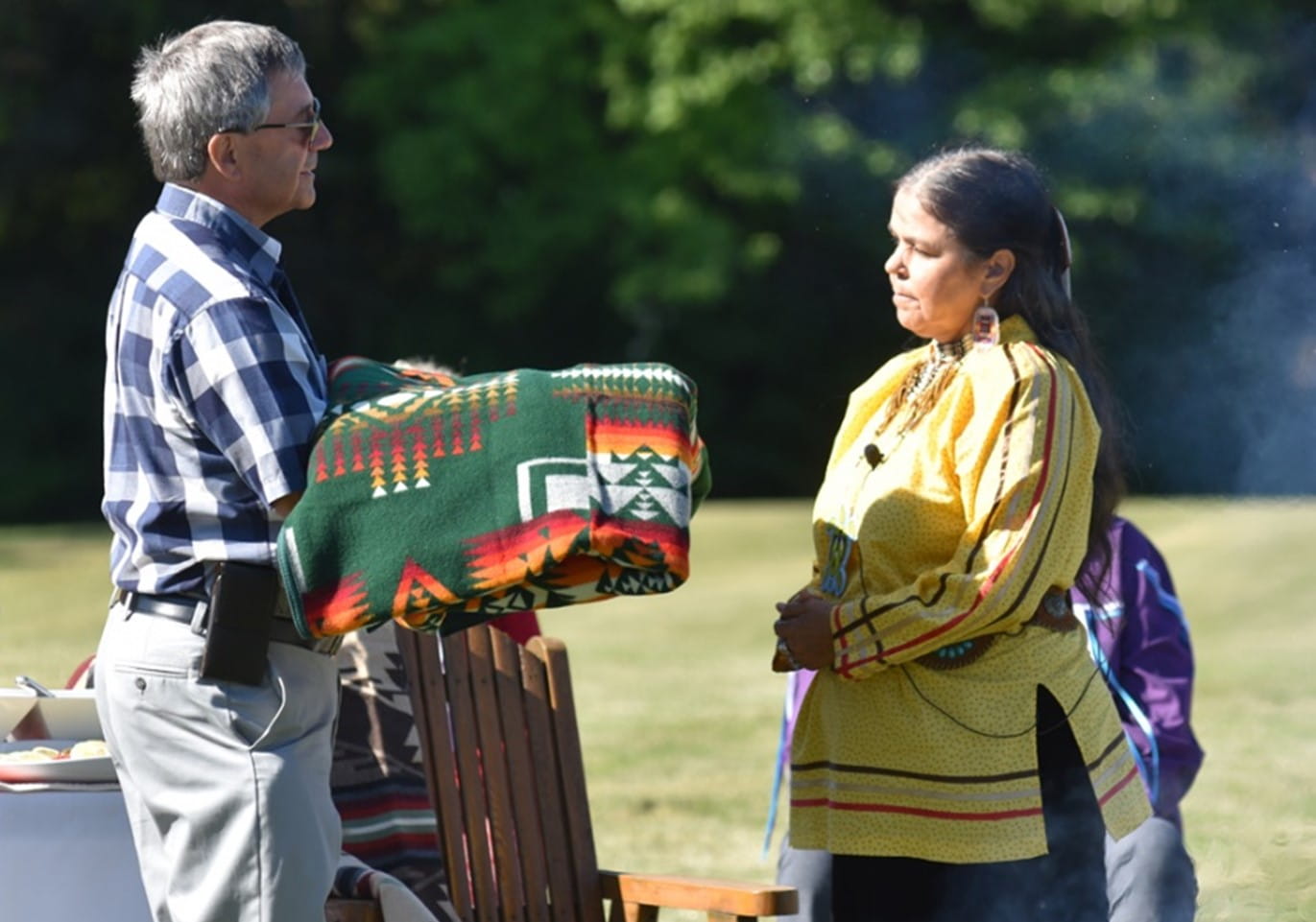
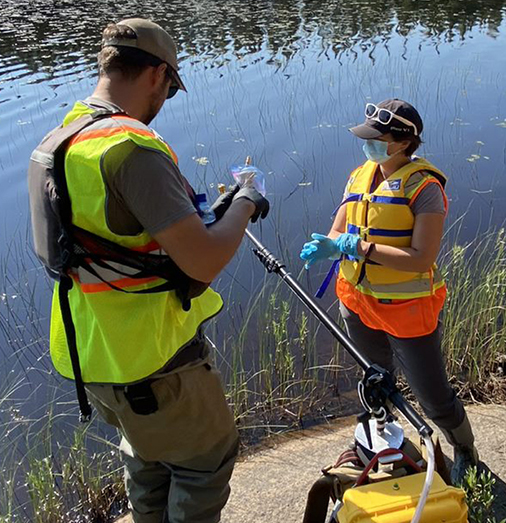
Land acknowledgement
Watch now
Our Reconciliation journey

Reconciliation report
We reached an important milestone in our journey toward Reconciliation in 2022 when we published our first Reconciliation report. It provides an evaluation of our Reconciliation Policy’s impacts since its formalization in 2019. Activities tracked included mandatory staff Reconciliation training and continuous learning opportunities, informal training opportunities, staff support systems and community-driven work plans.
Reconciliation Policy
On Oct. 17, 2019, through ceremony, the NWMO issued a Reconciliation Policy that sets out how the organization will contribute to Reconciliation. Under the policy, the NWMO commits to respectful and meaningful engagement with Indigenous peoples and communities, providing cultural awareness and Reconciliation training to staff and contractors, and annually publishing a Reconciliation implementation plan.
Reconciliation Statement
On July 18, 2018, the NWMO issued a Reconciliation Statement which reads as follows:
In the context of Reconciliation, the Nuclear Waste Management Organization (NWMO) recognizes historical wrongs in Canada’s past and the need to create a better future by addressing the challenges of today. The NWMO Council of Elders and Youth speaks of this journey as a new era for humanity — a time of Reconciliation with First Nation, Métis and Inuit peoples.
The NWMO is committed to contribute to Reconciliation in all its work by co-creating a shared future built on rights, equity and well-being. In addition, the NWMO will establish a Reconciliation Policy with an implementation strategy that will be measured annually and publicly reported to contribute to the Truth and Reconciliation Commission’s calls to action.
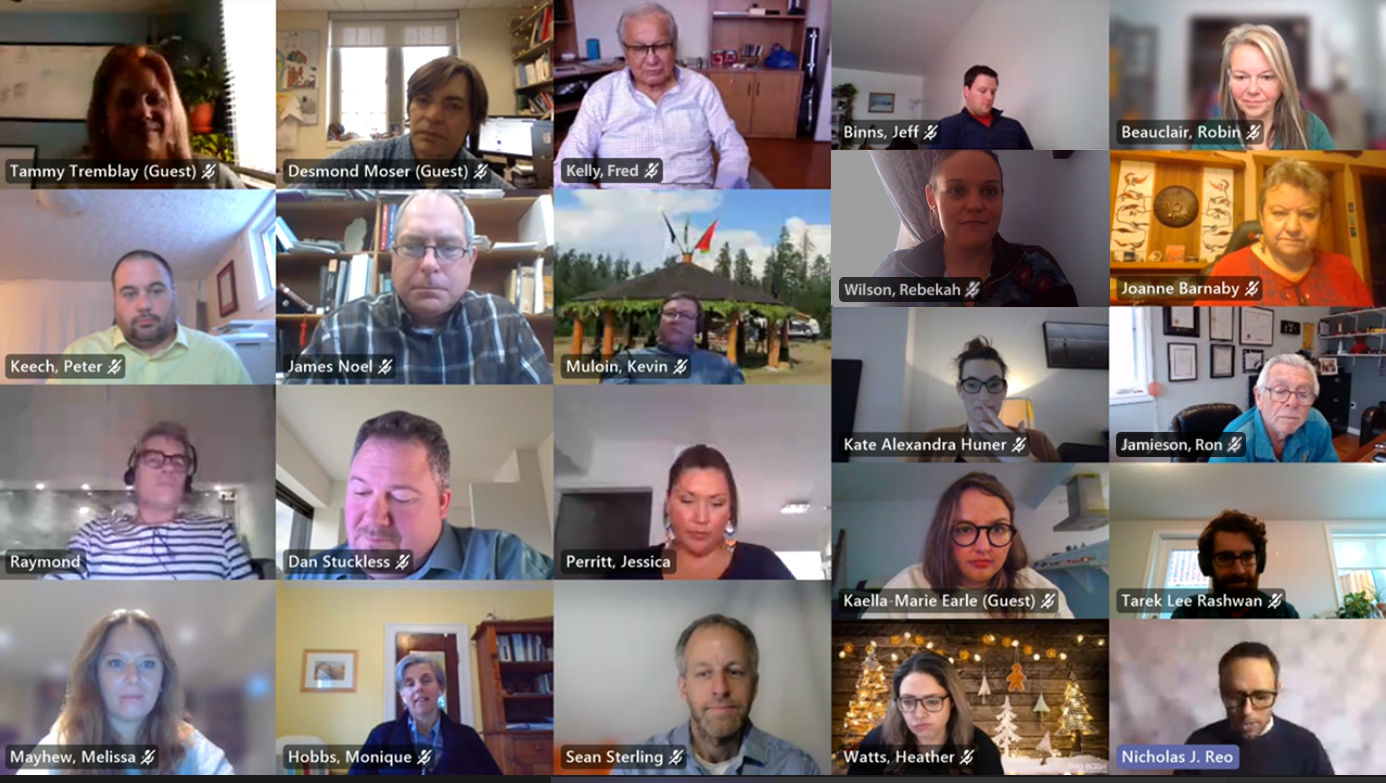
Aligning with Indigenous Knowledge
